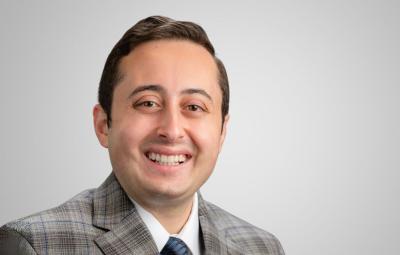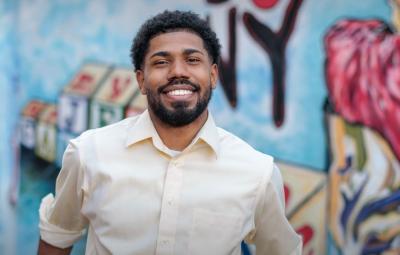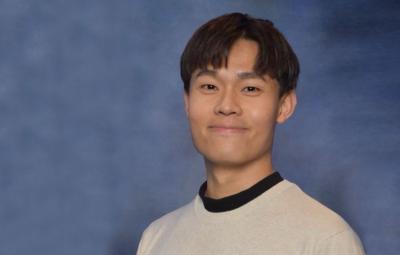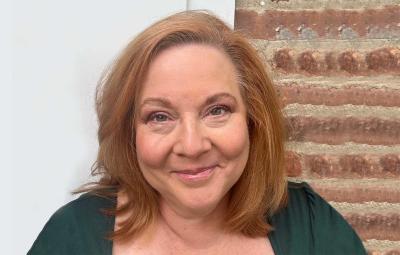
The urgent need for American justice and prison system reform took center stage at John Jay College of Criminal Justice on Jan. 29, as the second annual American Justice Summit brought together individuals who are working at both the policy and grass roots levels to find creative and effective solutions for a variety of pressing problems. (Check out #AJS.)
View photo gallery, here
Watch videos, here
Practitioners and scholars were joined by community activists, performing artists, and other concerned stakeholders for the day-long exploration of issues that included juvenile incarceration, gun control, immigrant detention, the state of policing in America, and criminal justice priorities for the next U.S. President. The event was presented by Tina Brown Live Media, and co-sponsored by John Jay College and the Ford Foundation.
“At a time when bipartisan efforts for reforming the criminal justice system are fervent, we at John Jay College are proud to partner with TBLM for this important event,” said college President Jeremy Travis. “This second annual summit convened thought leaders, legislators, victims and social activists to present powerful narratives, generate urgent change and call the nation to action.”
Presented before a full house in the Gerald W. Lynch Theater, the American Justice Summit featured panel discussions, one-on-one conversations and performances. The event began with a four-person panel on “Memo to the Next President,” in which Representative Tulsi Gabbard, a Democratic Congresswoman from Hawaii, said she saw hope that the next administration will see progress on criminal justice reform. “How often do you see the ACLU partnering with the Koch brothers?” she noted. (Check out this innovative 1:45-sec video – using the KnowMe app – created by filmmaker Andrew Jarecki, one of the guest speakers on this panel)
The summit took on added poignancy in discussions with relatives of victims of injustices, including Venida Browder, the mother of Kalief Browder, who endured three years of brutal confinement on Rikers Island for a crime he didn’t commit. Not long after his release, having never been brought to trial, Browder took his own life. “Justice, to me, is having the system admit that they’re the reason for my son’s death,” Browder said.
Other interviewees included Dean Strang, attorney for the wrongly convicted and imprisoned Steven Avery; Sharon Cooper and Geneva Reed-Veal, sister and mother, respectively, of Sandra Bland, who died in police custody in Texas; and Jahmal Cole, nephew of Bettie Jones, who died at the hands of Chicago police. Addressing the topic of police use of force, Reed-Veal observed, “If you have a badge and can’t control your aggressive impulses, maybe you need a timeout.”
Preet Bharara, the U.S. Attorney for the Southern District of New York, noted in an interview that his office prosecutes some of the most compelling cases in the country, involving drug traffickers and mobsters, corrupt politicians and white-collar criminals. “We don’t care who you are, how powerful you are, how much money you have,” said Bharara, “you are not above the law.” He went on to note that prosecution alone cannot solve any fundamentally important criminal justice problems. “It’s just one piece of the puzzle,” he stressed.
The role of artists in pushing for social justice was explored in an interview with the hip-hop artist Usher Raymond IV, who called art “an indispensable ingredient in the recipe for social justice.” The Atlanta-based charity Usher’s New Look, founded by the artist in 1999, focuses on engaging disconnected youth. “We’re raising future adults,” said Usher. He said of himself, “I’m a human being who cares about my planet, who cares about people. If that makes me an activist, I’ll take that on as a title.
“I’m gonna stand on my soapbox and talk about [social justice] as loud as I can, but I can’t do it alone,” Usher stated. “I need all of your help.”
The afternoon sessions started with a powerful conversation between Tina Brown and Dean Strang, Steven Avery’s tenacious appellate lawyer from Netflix’s Making a Murderer. Strang noted that people caught in the criminal justice system are impoverished in many ways, not just financially. “The process of justice reform starts with humility, he said. “We are all flawed. We make mistakes. Systems are flawed.” (See http://nytlive.nytimes.com/womenintheworld/2016/01/29/making-a-murderer-lawyer-says-humility-is-the-answer-to-flawed-legal-system/)
New York Police Commissioner William Bratton described the NYPD’s transition into what he termed the “Predictive Policing” era, based on significant investments in technology, collaborative efforts to rebuild community trust and revisions in recruit and field training. “You wouldn’t want to go to a doctor whose last training was 30 years ago,” the Commissioner said. “It’s the same with cops.”
Former U.S. Attorney General Eric H. Holder Jr. anchored the summit’s close, describing the criminal justice reform efforts he pressed for during his nearly six years in the Obama Administration. He spoke out strongly about the lack of gun control measures, even in the wake of the Newtown massacre, and the lack of political will to close the military detention center at Guantanamo Bay, Cuba. If the decision to try the 9/11 defendants in civilian court had stood, Holder told Tina Brown, “Khalid Sheikh Mohammed and his confederates would be on death row right now instead of waiting for their first pre-trial hearing.” (See https://www.yahoo.com/politics/holder-free-to-speak-his-mind-takes-on-congress-200959197.html )
John Jay College was represented among the panelists by President Travis and Professors David Kennedy and Karin Martin. Alumni Kenneth Thompson, the Brooklyn District Attorney, and Joanne Jaffe, Chief of the NYPD’s Community Affairs Bureau, also participated.
Other panels included (click here for memorable quotes from the panels):
“The Warehouse Scandal,” how American jails have become warehouses for the poor and mentally ill;
“Zero Tolerance: Zero Justice,” innovations for diverting at-risk youth away from the criminal justice system;
“Immigrants in Terror,” firsthand accounts of conditions in U.S. immigrant detention centers;
“The Culture of Punishment: It Doesn’t Have to Be This Way,” a comparison between America’s punitive prisons and Germany’s rehabilitation-centered system;
“Gun Madness: New Thoughts, Real Solutions,” ideas and strategies for changing gun culture and stemming the bloodshed.
Review full summit agenda, here.
Review full summit announcement, here.



